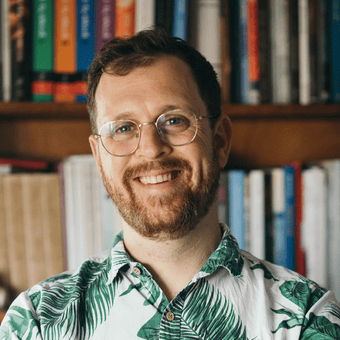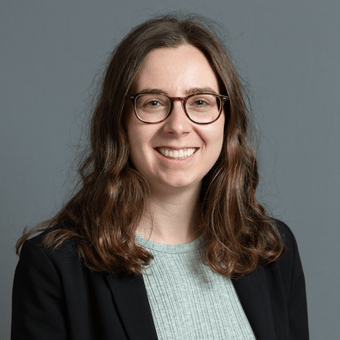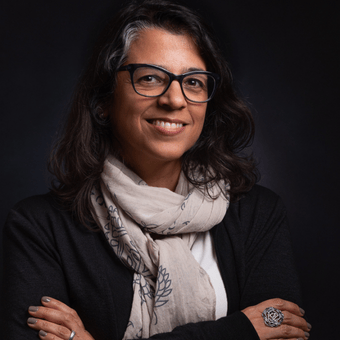Current Scholars
The HBI scholar in residence program offers distinguished scholars, writers and communal professionals the opportunity to produce significant work in the area of Jewish studies and gender issues while being freed from their regular institutional responsibilities. Scholars in Residence contribute to the life of HBI by immersing in the institute’s weekly activities, participating in HBI conferences and programs, and delivering a public lecture.
2025-2026

Dotan Brom
"The Lesbian Feminists Are The Bridge": Anglo-American Feminists and the Rise of Lesbian Activism in Israel (1971-1987)
Dotan Brom is a PhD candidate at Tel Aviv University's School of Historical Studies. His research focuses on Israeli queer history: his MA thesis at the University of Haifa dealt with the history of homosexuality in the kibbutz. His dissertation, concerned with Haifa's queer past, originated in the Haifa Queer History Project, a local queer community archive and oral history project, co-founded by Brom in 2015. The HQHP also organizes the annual Haifa Queer History Festival which included Israel's first museum exhibition on queer history, in collaboration with the Haifa City Museum, co-curated by Brom. He is a tour guide focusing on local social, political, and cultural histories, and the current co-creator of the Hebrew podcast, Toldot HaMiniyut ("The History of Sexuality"), focusing on queer history, politics, and culture.
At HBI, Brom will explore U.S.-based archival collections, including the work of Marcia Freedman, an American Jewish woman who immigrated to Israel after the 1967 war and became one of the pivotal figures of second-wave feminism, and whose papers are housed in Brandeis University’s Jewish Feminism Collections. Brom will additionally consult materials at the Lesbian Herstory Archives and the LGBT Community Center National History Archive in New York City.
HBI Seminar with Dotan Brom | This event has passed.

Tamar Aizenberg
The Third Generations: Grandchildren of Survivors, Grandchildren of Perpetrators, and Holocaust Memory
Tamar Aizenberg is a PhD candidate in the Near Eastern and Judaic Studies Department at Brandeis University. Her areas of research are Holocaust memory, German Studies, and oral history. Aizenberg’s research has been supported by several fellowships, including a Fulbright Student Fellowship, a Joseph Wulf Fellowship, and an EHRI Conny Kristel Fellowship, and by grants from HBI, the Tauber Institute, and the Max Kade Foundation. During the 2024-25 academic year, she was a Research Fellow at the Leo Baeck Institute. Along with her academic work, Aizenberg serves as the Peer Review Associate at In geveb.
At HBI, Aizenberg will work on her dissertation, which is an experiential history of the grandchildren of Holocaust survivors and the grandchildren of Holocaust perpetrators, or the third generations, in Austria, Germany, and the United States. She examines the development of these generations as distinct groups, how their families narrate their histories, and how grandchildren explore their family histories on their own terms.
HBI Seminar with Tamar Aizenberg | Knowledge of the Same Abyss: The Third Generations and Holocaust Memory | April 27 | 12 - 1 pm EDT | In-person at HBI and online | Information and registration.

Adriana M. Brodsky
Jewish Youth in Argentina, 1940-1976
Adriana M. Brodsky is Professor of Latin American and Jewish History at St. Mary’s College of Maryland. She has published on Sephardi food, schools, beauty contests, and Latin American Jewish History in general. She is currently finishing a manuscript on Argentine youth in Zionist movements (1940s-1970s). She is co-President of the Latin American Jewish Studies Association (LAJSA). Her most recent publication, Jews Across the Americas is co-edited with Laura Leibman and follows her book, Sephardi, Jewish, Argentine: Creating Community and National Identity, 1880-1960, (Indiana University Press, 2016). At HBI, Brodsky will continue her work with Argentine youth in Zionist movements, focusing specifically on women.
HBI Seminar with Adriana M. Brodsky, PhD | The "New" Jewish Woman: Argentine Sephardim and the Transformations of Activism | March 23 | 12 - 1 pm EDT | In-person at HBI and online | Information and registration.